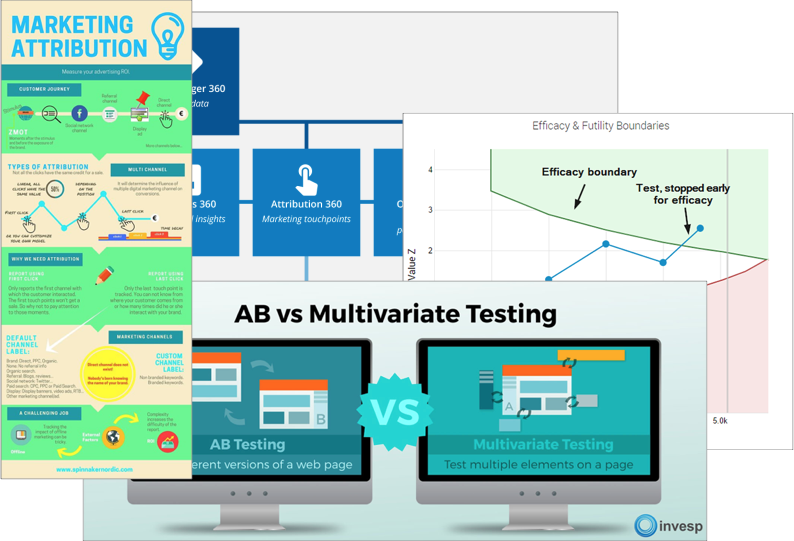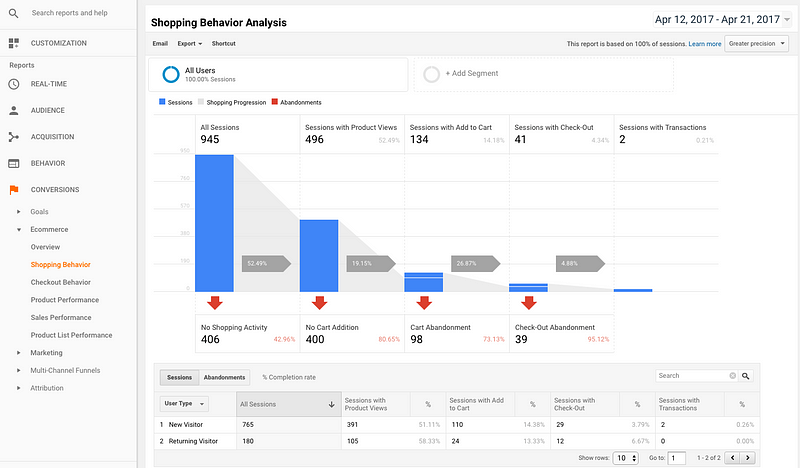UKOUG Tech’17 and the Incredible World of eCommerce Analytics, Machine Learning and 1:1 Marketing
Although my main focus this past year has been in product management and the vendors and technologies that London’s FinTech and MarTech startups tend to use, my professional roots are in the Oracle world and I still maintain a strong interest in what’s new and innovative coming out of Redwood Shores such as the new Analytic Views feature introduced with Oracle Database 12c I covered on the blog back in May this year.
I’m particularly pleased therefore to be travelling up to Birmingham this week to attend the UK Oracle User Group Tech’17 Conference where I’ll take part in a few Oracle ACE Director briefing and social events, catch-up with some old friends and past colleagues and speak on the Tuesday about something that’s fascinated, newly-motivated and quite honestly surprised me in this year away from Oracle BI consulting: the world of high-growth eCommerce and tech SaaS startups and how they intensively-use analytics, stats models and now AI to out-think, out-manouvre and out-compete their old-world brick-and-mortar competition … and how most of us have never even heard of the tools and analysis techniques they use to do it.
In my previous life the BI tool of choice was Oracle BI Enterprise Edition, or maybe Tableau, Qlik or Oracle DV if you wanted something self-service or more vizualization-focused. In the eCommerce world it’s Google Analytics, not the free version you’ve used in the past to see how popular your blog is but instead the full Google Analytics 360 Suite which well goes beyond simple counts of page hits and returning visitors. Google Analytics 360 provides digital markers with tools to measure retention and churn, goals achieved and attribution of revenue based on first click, last click and behavioural rules, segment their customers into simple cohorts of customers similar to themselves and advertise to them using Google’s Adwords service in order to land them as prospects, move them rapidly through the purchase funnel to buy something, and with a bit of luck come back again later and buy something else again and again.
Google Analytics 360 is the de-facto standard for web analytics but other specialist tools and vendors exist alongside or as specialist competition such as MixPanel and Amplitude Analytics for product analysts, and tech startups such as Qubit with the Live Tap product that I’m product manager for that marketers use along with the Looker BI tool to make their use of Qubit’s personalization platform more data-driven and productive.
What to me makes all of this really interesting is the degree to which the business models and decisions taken by these eCommerce and SaaS businesses are driven by data and analytics, to the extent where marketing in the eCommerce world is math and anyone moving into digital marketing analytics needs to know statistics or the market will kill them all, except this time it’s true rather than being something Zed Shaw in his famous blog posts wishes were true.
In the presentation next week I’ll talk about how A/B testing, multivariate testing and more recently contextual multi-armed bandit models are used to optimize eCommerce sales operarations and mobile app experiences to maximize conversions and select what features to offer, and how bayesian statistical models are commonly employed against raw transaction data to predict with confidence the actual uplift and revenue from a campaign by considering the probability of those transactions based on prior knowkedge and thereby filtering out the one or two outlier big-spenders who only appear once-in-a-while … except if you’re in the eGaming vertical where those are exactly the customers you’re all fighting over and you certainly don’t want to ignore their activity.

And, as Qubit’s found out a while ago and the most forward-looking brands who work with them are also discovering, just randomly flipping the colour of a button or blindly discounting doesn’t increase customer lifetime value over the long-term and for that you need to move to truly 1:1, personalized marketing and communications driven by individual-level behavorial event data powered by next-generation big data cloud platforms that are engineered from the outset for this purpose, not hacked-together from a bunch of old acquisitions.
More imporantly though the next problem has come along and it’s that everyone’s now using their smartphones to access those retailers’ mobile websites but then transacting far less than they did when using desktop browsers because mobile doesn’t work as well for browsing those retailers’ product catalogs; have you ever found something you like, purely by chance, when trying to buy something new to wear on a mobile phone?
Solving problems like this are what’s driving the deployment of machine learning algorithms against vast amounts of consumer data for product discovery and recommendations as led by Qubit and their recently launched Aura product described in in the Youtube video below
[embed]https://www.youtube.com/watch?v=Dfv1I3vtIzo[/embed]
Qubit Aura recommends new and relevant items to visitors based on their preferences and behavior and then presents it all using an Instagram/Tinder-style interface designed specifically for mobile devices, and in-particular the way we “window-shop” on our phone before transacting either on that same phone at a later date, or back at our desk once we’re in the office or at one of that brand’s stores on the way home from work or at the mall at the weekend.
Interestingly though and bringing it back to Oracle and the audience for the presentation I’m giving on Tuesday, Oracle are also now adding AI and data-driven features into their HR, CX, CRM and other line-of-business SaaS apps in an initiative called Oracle Adaptive Intelligent Applications that’s headed up by Jack Berkowitz, who many of you will know from the Oracle BI Applications days and who recently came on the Drill to Detail Podcast to talk about Oracle’s investments in this area; and also explained by Oracle’s Mark Hurd at the product announcement session at this year’s Oracle Openworld shown in the video below.
[embed]https://www.youtube.com/watch?v=z2qOi_TtD0U[/embed]
Oracle are solving a different problem to Qubit and like Salesforce with their Einstein initiative the aim here is to enable AI for the traditional, non-tech and established business sector who need all of this to work with their payroll, database and manufacturing systems and want Oracle to leverage all the financial and operational data it holds for them to increase their efficiency and make more effective decisions.
So … believe it or not that’s just a small part of what I’ll be talking about at UKOUG Tech’17 next Tuesday in Birmingham. Slides for the session are below:
[embed]https://www.slideshare.net/markrittman/analytics-is-taking-over-the-world-again-ukoug-tech17[/embed]
and in the meantime, if you see me around in one of the other conference sessions or at the Tap & Spile with the other Oracle ACEs and ACE Directors, say hello and I’m always up for a chat about this stuff and how it applies to Oracle customers and partners.

